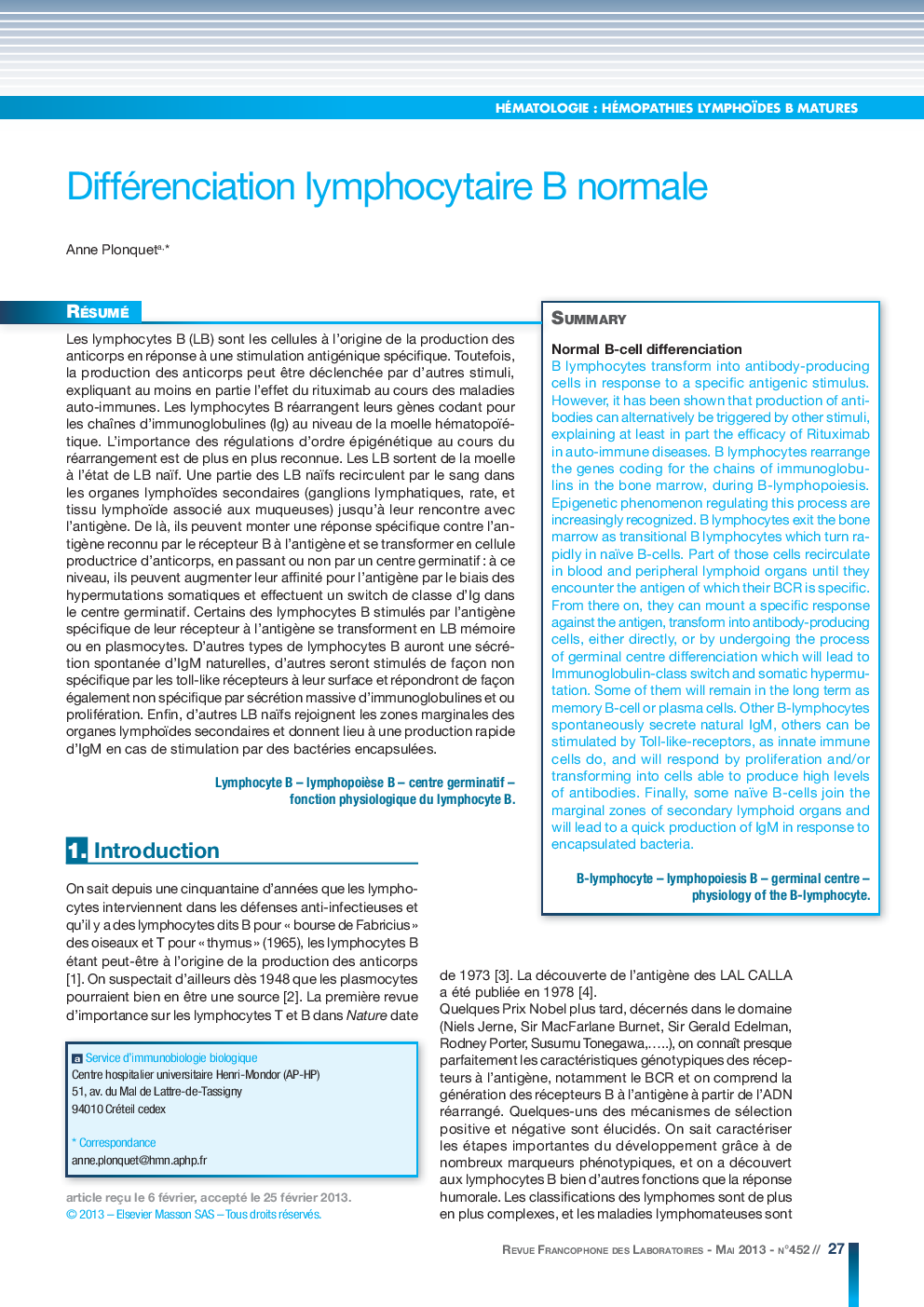| Article ID | Journal | Published Year | Pages | File Type |
|---|---|---|---|---|
| 7651921 | Revue Francophone des Laboratoires | 2013 | 9 Pages |
Abstract
B lymphocytes transform into antibody-producing cells in response to a specific antigenic stimulus. However, it has been shown that production of antibodies can alternatively be triggered by other stimuli, explaining at least in part the efficacy of Rituximab in auto-immune diseases. B lymphocytes rearrange the genes coding for the chains of immunoglobulins in the bone marrow, during B-lymphopoiesis. Epigenetic phenomenon regulating this process are increasingly recognized. B lymphocytes exit the bone marrow as transitional B lymphocytes which turn rapidly in naïve B-cells. Part of those cells recirculate in blood and peripheral lymphoid organs until they encounter the antigen of which their BCR is specific. From there on, they can mount a specific response against the antigen, transform into antibody-producing cells, either directly, or by undergoing the process of germinal centre differenciation which will lead to Immunoglobulin-class switch and somatic hypermutation. Some of them will remain in the long term as memory B-cell or plasma cells. Other B-lymphocytes spontaneously secrete natural IgM, others can be stimulated by Toll-like-receptors, as innate immune cells do, and will respond by proliferation and/or transforming into cells able to produce high levels of antibodies. Finally, some naïve B-cells join the marginal zones of secondary lymphoid organs and will lead to a quick production of IgM in response to encapsulated bacteria.
Related Topics
Physical Sciences and Engineering
Chemistry
Analytical Chemistry
Authors
Anne Plonquet,
